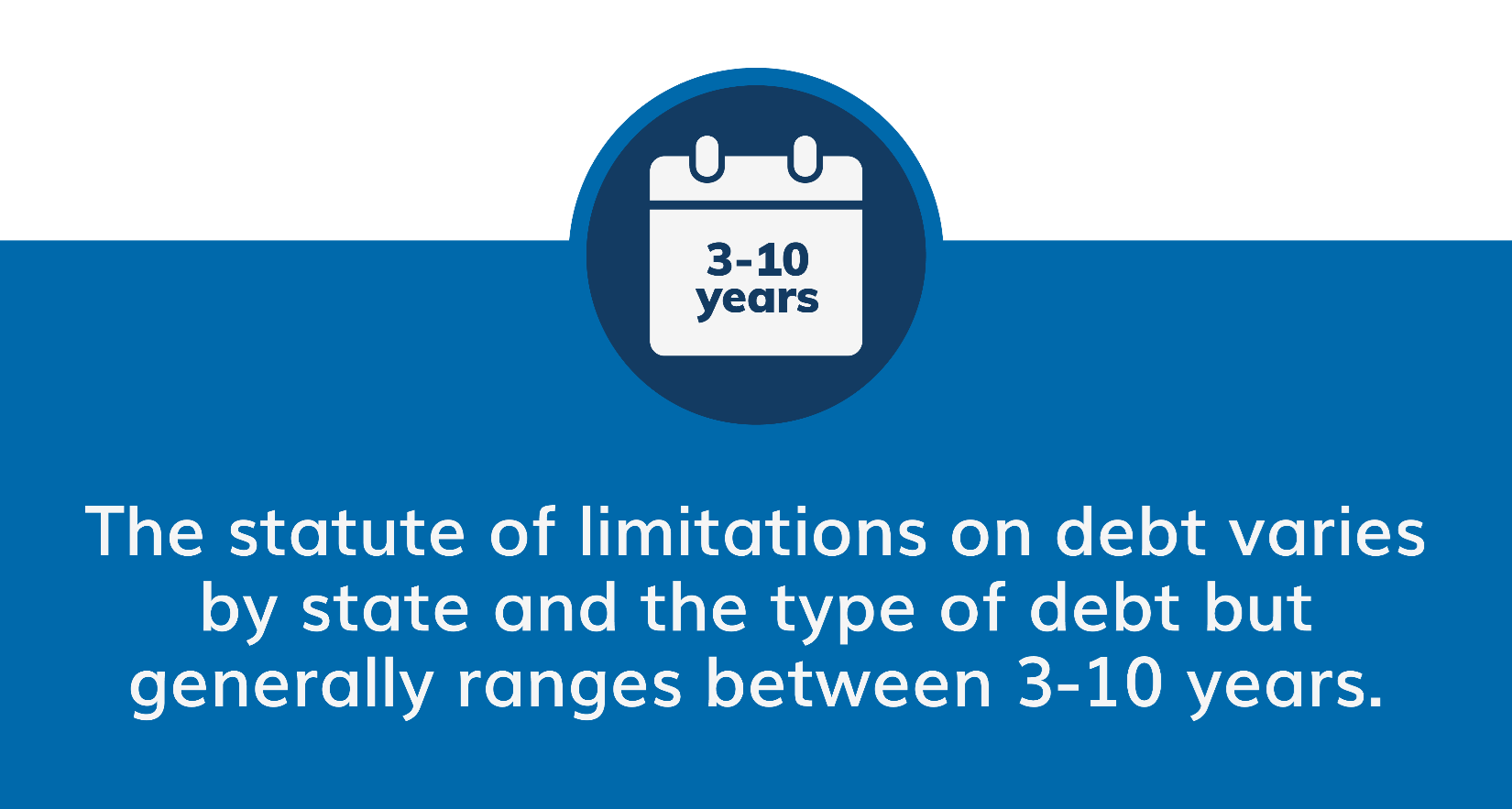If you have unresolved debt that you’re having trouble paying off, you might wonder if there’s a statute of limitations on credit card debt and other forms of debt. While you don’t want to rely on it, there is a statute of limitations on debt that is always applicable. This statute of limitations gives creditors a specific period of time during which they must file a lawsuit to collect a debt. If you want to know more about the statute of limitations on debt and how it affects you, read on.
- What Is the Statute of Limitations on Debt?
- What Does Time-Barred Debt Mean?
- Should You Pay Debt That Is Passed Its Statute Of Limitations?
- Key Takeaways: Statute of Limitations On Debt
What is Statute Of Limitations on Debt?
The statute of limitations on debt depends on the type of debt you’re dealing with and the state you live in. There are countless debt collection myths about the statute of limitations on debt and which debt you’re required to pay. The truth is that there’s a statute of limitations on debt, and that statute isn’t always the same. The statute of limitations on debt can be as low as 3 years in some states but as high as 10 years in others. You can look up the statute of limitations on debt collection by state to learn more.

What Does Time-Barred Debt Mean?
A time-barred debt is a debt that has passed the statute of limitations, at which point it essentially expires. This means that debt collectors are no longer allowed to threaten or take legal action against you because you didn’t pay your debt. While your creditor can still collect a debt, they can’t sue you to do it. This means you might not have to worry about having wages garnished or assets seized in an attempt to collect a debt, but that doesn’t negate the benefits of resolving debt accounts.
Should You Pay Debt That Is Passed Its Statute of Limitations?
You might think the statute of limitations on debt means you don’t have to repay debt for which the statute of limitations has expired. While debt collectors can’t sue you when the statute of limitations expires, they can still contact you to collect a debt. Additionally, a debt can be past the statute of limitations and still be reported to credit bureaus. If you have unresolved debt with an expired statute of limitations, create a budget and consider negotiating a settlement with your debt collector.
Key Takeaways: Statute of Limitations on Debt
The statute of limitations on debt can vary depending on the type of debt you have and the state you’re in. Repaying your debt on time can help you maintain a better credit score and avoid paying extra fees. Even if you have debt for which the statute of limitations has expired, consider contacting your debt collector to resolve your debt. At Midland Credit Management, our team can work with you to create a repayment plan to resolve past-due accounts.